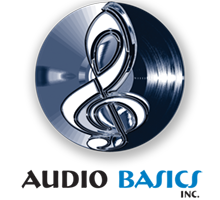"Ehrling's rhythmic scansion and projection are in the Toscanini-Reiner category."_x000D_
- Fanfare_x000D_
Danish National Orchestra_x000D_
Most associate the era of the great radio orchestras with England's BBC Symphony, founded in 1930 and conducted by Sir John Barbirolli, or with Arturo Toscanini's NBC Symphony of the Air, begun in 1937. While broadcasting was still in its infancy, however, a modest-sized ensemble in Copenhagen began to broadcast live classical music to its radio listeners. That auspicious start was on April 1, 1925. Now, sixty years later, the Danish National Orchestra bears the distinction of being one of the oldest existing radio orchestras of the broadcasting age._x000D_
Since its founding, the Danish National Orchestra has hosted the most prestigious of guest conductors, including Eugene Ormandy, Vaclav Neumann, Rafael Kubelik, Leopold Stokowski, Fritz Busch, Nicolai Malko, Albert Wolf, John Pritchard, Carl Schuricht and Sergiu Celibidache, among others._x000D_
The Danish National Orchestra also bears the unique distinction of having had the "Musical Monarch," King Frederick IX, regularly conduct performances of the orchestra in the presence of the royal family and close friends until his death. The Danish National Orchestra has always enjoyed the patronage of the royal family. The first American tour in 1956 and the second American tour in 1958 were under the Royal Patronage of King Frederick IX, and the 1984 tour was under the Royal Patronage of His Royal Highness the Prince Consort._x000D_
Eugene Ormandy, distinguished conductor laureate of the Philadelphia Orchestra, began a series of brilliant successes in Copenhagen as guest conductor of the Danish National Orchestra._x000D_
With a repertoire that spans the classics of the eighteenth and nineteenth centuries, the orchestra also features the works of the Danish masters, first and foremost those of Carl Nielsen.
FREE shipping on most purchases over $100.00 for most of Canada.
For Ontario and Quebec pay only $5.00 shipping for purchases over $50.00.
-
View Cart 0
-
Your shopping cart is empty!
Sixten Ehrling, Danish National Orchestra - Carl Nielsen
About Us
Audio Basics is a re-seller of unique audio electronics and accessories offering quality, world-renowned brands of audio equipment, accessories, and music to consumers across Canada.
Testimonials
Extremely accommodating service
Excellent variety of products in higher end of audiophily. Extremely accommodating service. Promptness in delivery and exceptional service! Highly recommend!
Aldo, DonatiAug 26, 2015
A hidden treasure
I’m “hooked” as an Audio Basics customer, and particularly so with Ben. They carry everything from great introductory equipment, to extremely high-end audiophile components. Their price ..
Michael, MagliettaAug 26, 2015
NEWSLETTER
Get exclusive news and deals emailed direct to your inbox!
Information
Contact Us
Brands
My Account
Tel: 1.877.922.8346
Fax: 1.866.335.2103
Audio Basics Inc
The Courtyard Studio of Kleinburg ,
10480 Islington Ave, Suite 4 ,
Kleinburg,
Ontario,
Canada,
L0J 1C0,
Canada.

 +
+